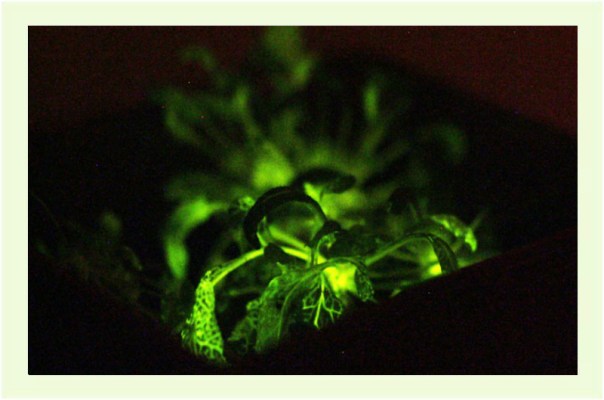Long known for backing software plays, Y Combinator is starting to dip its toes into biotech.
In its latest batch is a new synthetic biology startup called Glowing Plant that blew away Kickstarter funding goals last year with plans to engineer — you guessed it — a glow-in-the-dark plant.
Glowing Plant’s aims are to build functional plants for the home that could repel insects or work as air fresheners. The inspiration behind the original glowing plant was to rethink street or nighttime lighting.
“The glowing plant is still our first focus, but we’re beginning to expand outside that range,” said Antony Evans, the company’s CEO. “An analogy could be like the 1980s vision of having a desktop computer for every home. We would like to see every house have genetically modified organisms.”
Evans stresses that they’re not focusing on food products like Monsanto and its politically controversial genetically modified foods. Furthermore, they’re not working with gene pathways that promote selective advantages that would help plants compete with other living organisms or disrupt existing ecosystems.
“The big problem holding back the space are consumer expectations because of the way the conversation is being framed by large industrial companies,” he said. “We really see our plants as a tool for changing that debate. With food, the risk of unintended consequences is much larger. We just want to build fun, cool products.”
Y Combinator’s backing comes as costs around genome sequencing and other key foundational technologies fall faster than Moore’s law would predict. Other young San Francisco Bay Area-based biotech companies include Counsyl, which does carrier screening for prospective parents and genetic disorders they could pass on to their children, and Cambrian Genomics, which is trying to do low-cost DNA printing.
“The rise of the affordable biotech company is what’s driving YC’s interest in the space. Costs are coming down tremendously fast,” Evans said.
Evans said the four-person startup plans on launching a seed round at Y Combinator’s Demo Day. Most of their funding has come from pre-orders in their $484,000 Kickstarter campaign.
In a demo a few months ago in their SOMA basement, I saw some of the working plants. They definitely glow in the dark but they are a bit too dim to be functional as night lights. Evans says they’re improving with every generation of the plant.
